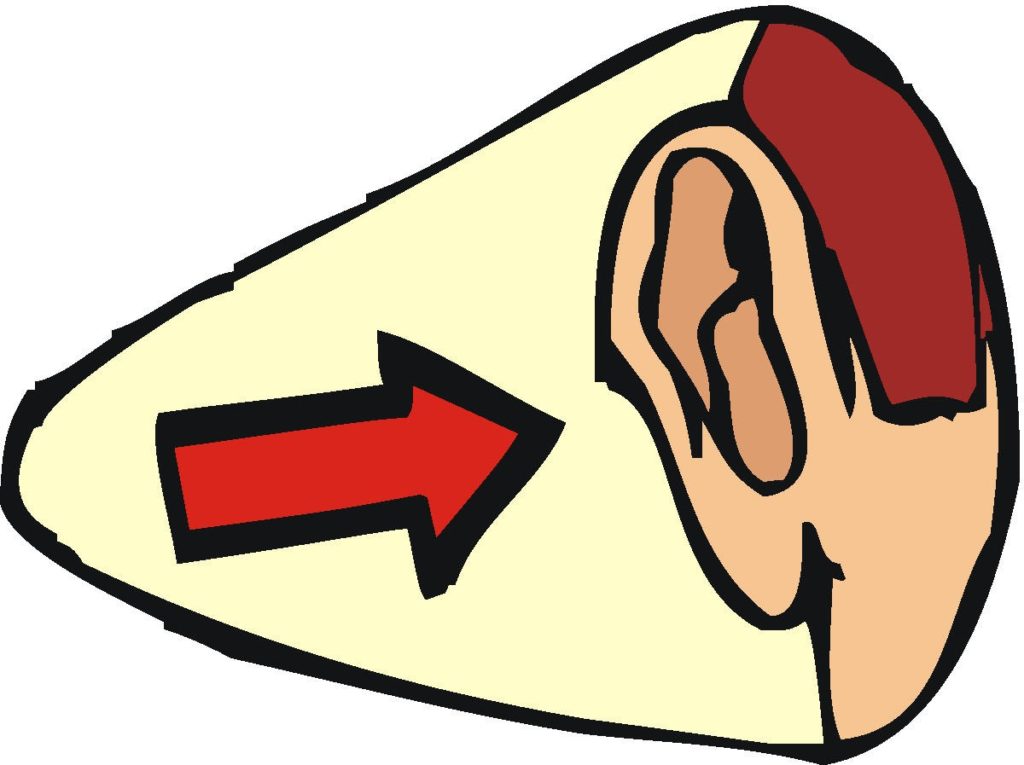
Deuteronomy 6
Deuteronomy 6:4, Hear [shema] O Israel. This statement (verses 4–9 coupled with Lev 19:18) is known as the “Shema” and is a statement of faith in the Jewish religion. In Mark 12:29–31, Yeshua also cites the Shema as the summation of all that Torah commands humans in order to have a proper relationship with YHVH and their fellow man. The word shema means “to hear, listen, obey.” How often, when it comes to obeying YHVH do we draw near or honor him with our lips, but our hearts are far from him? (See Mark 7:6; Isa 29:13; Matt 15:8.) Though similar in spelling, the words shema and shamar have different etymologies, yet we still juxtapose them conceptually. The Hebrew word shamar is often translated into English as guard, beware or keep (see verse 12), while shema means “to hear and do.” When we guard or keep YHVH’s commandments, we will hear and do them and vice versa. The two concepts of guarding/keeping and hearing/doing go hand-in-hand and when spiritually active in our life they prevent us from falling into idolatry, which YHVH warns us against in verses 10 to 16.

Deuteronomy 6:7, 10–16, 20–25, Instruct your children in the Torah, so they don’t fall into idolatry. YHVH is constantly warning his people against idolatry; idol worship is anything that gets in the way of our relationship with him.
If you’re not sure whether you have idols in your life, then ask yourself this question: What is of higher priority in your life than serving YHVH? What in your life takes more of your time, energy and money than serving YHVH? What draws your heart away from the study of his written Word, from prayer and fellowship? What or who hinders you from moving forward in your spiritual walk? What in your life keeps YHVH from getting out of a spiritual box in your life? This is idolatry!
Our children follow our example more than our words. By our actions, if YHVH isn’t first in our life our children will follow our example and will be prone to perpetuate our idolatrous ways down the generational line.
Several times YHVH instructs the children of Israel to be certain to instruct their children in the ways of Torah-righteousness. In the Shema, YHVH commands, “And you shall teach them [i.e. his Word] diligently to your children, and talk of them when you sit in your house, and when you walk by the way, and when you lie down, and when you rise up” (6:7). Then in verses 20–25 of the same chapter we read,
“When your son asks you in time to come, saying, ‘What is the meaning of the testimonies, the statutes, and the judgments which YHVH our Elohim has commanded you?’ Then you shall say to your son: ‘We were slaves of Pharaoh in Egypt, and YHVH brought us out of Egypt with a mighty hand; and YHVH showed signs and wonders before our eyes, great and severe, against Egypt, Pharaoh, and all his household. Then He brought us out from there, that He might bring us in, to give us the land of which He swore to our fathers. And YHVH commanded us to observe all these statutes, to fear YHVH our Elohim, for our good always, that He might preserve us alive, as it is this day. Then it will be righteousness for us, if we are careful to observe all these commandments before YHVH our Elohim, as He has commanded us.’”
Too often in the church-system, the children have had to take the backseat when it comes to discipleship and ministry. They get a few table scraps thrown at them called “Vacation Bible School” (once a year), an on a weekly basis, a Sunday school class with a Jonah and the Whale-type teaching accompanied by some, often inane, craft project. Seldom does the head pastor of the church bother with the children’s ministry. Usually, this function is relegated to the younger associate pastor. Typically, the position of “Youth Pastor” is viewed as nothing more than a stepping stone to the “top dog” position of “Head Pastor.” Furthermore, seldom do parents spend any meaningful time during the week instructing their children in the ways of YHVH.

As redeemed Israelites, it is our opportunity to follow the Torah and to place the highest ministry priority on instructing our children in the Truth of the written Torah, as well as the Truth of Yeshua the Living Torah, and in the fundamentals of who we are as members of the commonwealth of Israel (Eph 2:12), and in preparing ourselves for the kingdom of Elohim. If we do not do this, then who will? As parents, what are you doing on a regular basis to diligently instruct your children all day, every day? As grandparents, aunts and uncles and members of a gospel-orientated Torah community, what are you doing to help in teaching the children? What was the attitude of the disciples when they attempted to shoo the children away from Yeshua? What was Yeshua’s response? Read and compare Matthew 19:13–15 with 18:1–5 and go and do likewise, for they are our future and our legacy!
Deuteronomy 7

Deuteronomy 7:12, Because you listen. This verse shows the conditional nature of the Mosaic or Sinaitic Covenant. Blessings from heaven are conditional upon obedience to YHVH’s Torah instructions in righteousness. It was each person’s choice to obey YHVH or not. Either way, the law of cause and effect would come into play: blessings for obedience and curses for disobedience. The same is true with the New Covenant. If we place our faith in Yeshua the Messiah,who is the Living Torah, and love him by keeping his commandments (John 14:15, 21), we will not only be blessed physically blessed here and now, but we will be blessed with eternal life (Matt 5:19). Those who refuse to place their faith in Yeshua and obey his commandments will receive the fruit of their disobedience now, and will also perish in the lake of fire (Rev 20:11–15). The law of cause and effect still applies to both the Mosaic Covenant and the New Covenant, and humans will reap the consequence of their actions based on the choices they make whether good or bad. It’s that simple.
Deuteronomy 7:17–18, Dispossess them…not be afraid.Do we walk by faith or by sight (i.e. relying strictly on our human logic or intellect instead having faith in the Word and Truth of Elohim)? Was it logical to think that Israel could dispossess a fortified land full of people mightier and greater in number than themselves? Fear and logic are often the enemies of faith in YHVH’s Word and promises. Without faith it is impossible to please YHVH (Heb 11:6), and the just shall walk by faith (Heb 10:38). What is faith? (See Heb 11:1.)
By faith the physical creation came into existence (Heb 11:3), therefore, faith preceded the physical creation and is the “mother” of it. From the “womb” of faith, if you will, came forth all that we see and know. That “womb” is the very heart, character and mind of YHVH Elohim. It is spiritual.
We live in a physical dimension. The new heaven, new earth, and the Jerusalem from above, for which we look, will be of a spiritual dimension. Those who plan on living forever in that dimension after their physical lives have come to an end must learn to walk in the spiritual dimension here and now by trusting in the Word and promises of YHVH for all of their needs. What lessons can we learn from the Israelites in this regard?
Deuteronomy 7:18; 8:2, 11, Remember… forget not. An essential element of a strong faith in the promises of YHVH (e.g. prosperity, verse 13; fruitfulness of the womb, verse 14; healing, verse 15; victory over enemies, verse 16; etc.) is to remember YHVH’s past accomplishments in your life: how he has healed you, prospered you, answered your prayers, transformed your life, delivered you from your enemies and troubles, given you meaning, hope and purpose to your life. In the last days, many people are becoming lukewarm in their faith, are turning away from Yeshua the Messiah (who is also YHVH of the Tanakh, see Acts 7:36–38; 1 Cor 10:4, 9; and compare John 14:15 with Deut 11:1 and Exod 20:6), and are turning to idolatry, doubt and unbelief, secularism, materialism, hedonism, and false religions because they have forgotten what YHVH-Yeshua did for them. Have you forgotten? To forget is a slippery slope that can lead to spiritual oblivion. Take a moment to recall the wonderful things he has done for you. Write them down. Remember them. Thank and praise him for them.
Deuteronomy 7:20–24, YHVH will go before you. Do you really believe that YHVH is leading you into your spiritual Promised Land? What is your mission, calling, destiny and purpose in life vis-à-vis helping to advance the kingdom of Elohim? As he promised to be with the Israelites and to go before them (Deut 7:20–24), so his promise commandments and faithfulness are for a thousand generations (Deut 7:9), which means they are for you! If you do not have a mission, goal or purpose (the Israelites’ goal and mission was to enter and to possess the Promised Land) then you will wander aimlessly in the wilderness indefinitely.
Deuteronomy 7:25, Carved images of their gods. This shows the link between the two commands contained in the ten statements or commandments relating to idolatry. The prohibition against the worshipping of false gods and making graven or carved images is actually one command with two parts. Men tend to worship idolize what they can see or make.

